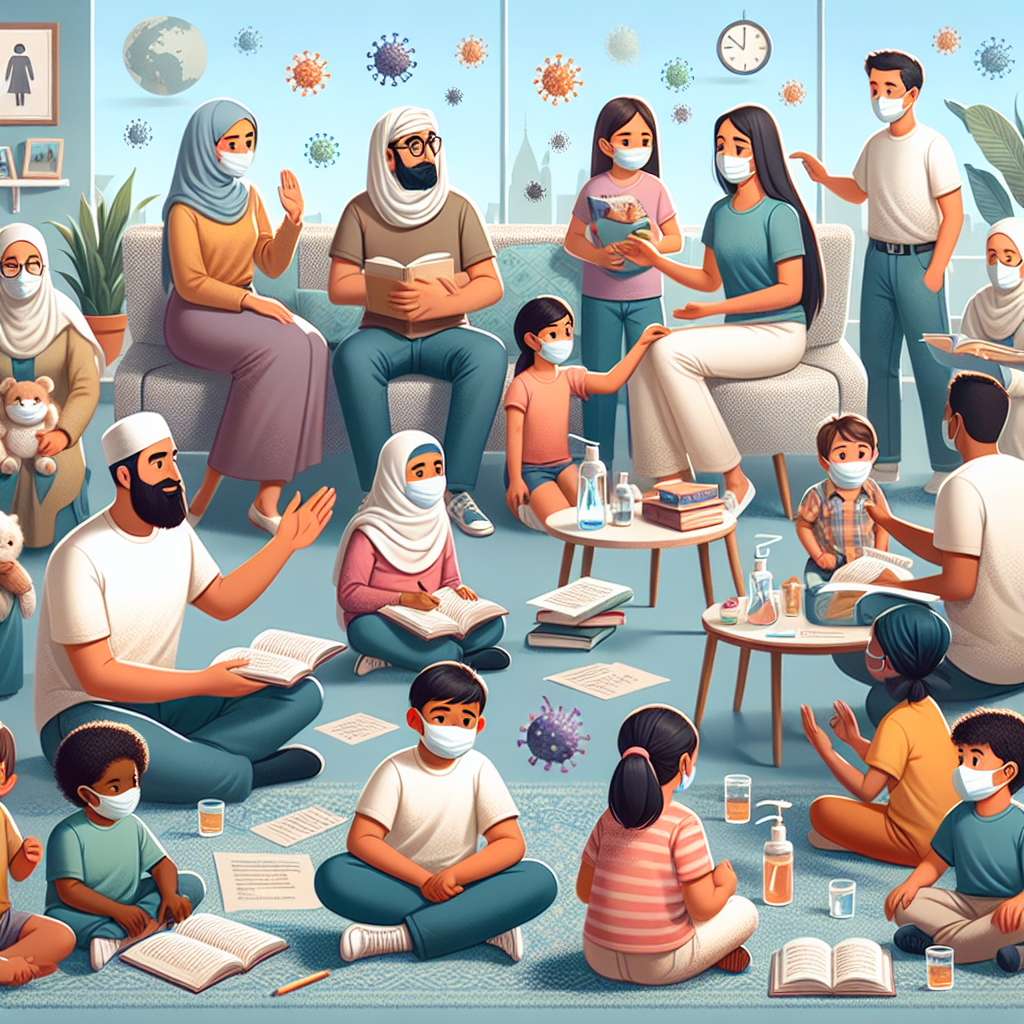How and What to Tell Kids About the Coronavirus: A Parent's Guide
In a world full of uncertainty and constant change, the role of the parent in informing and protecting his children is more essential than ever. In the current pandemic context, where information about the coronavirus (COVID-19) is abundant, how can we filter it and present it in a manner adapted to the age and understanding of our children? In this article, we provide you with a complete guide on how to approach the topic of the coronavirus with your children.
Emotional Development
It is important to start by understanding the child's emotional development. At a young age, children are extremely sensitive to the emotions of those around them, so the way we react and discuss this topic can affect their well-being. Before going into technical details about the virus, make sure to reassure them and constantly show them that they are safe. Our answers must be honest, but always calming, avoiding creating a state of panic or stress. Discussions about hygiene and necessary precautions should be presented as a process of care, not one of fear.
Cognitive Development
As the child grows, so does his understanding. It is important to adapt the information to their cognitive level. For young children, use simple, to-the-point explanations, such as "a virus is a small germ that can make us sick and we need to wash our hands to stay healthy." As the child gets older, you can start to give more details, using illustrations or simple experiments to help them understand.
Motor Development
Even discussions about the coronavirus can be related to motor development. Learning proper hand washing techniques or hygiene habits is part of their fine motor development. Involve them in hands-on activities that reinforce the importance of good hygiene, such as games or songs about hand washing. By doing so, you help them develop their motor skills while learning about health and prevention.
Language development
Communication about the coronavirus must also stimulate language development. Use this time to teach them new words and concepts related to health. Encourage them to ask questions and give them answers tailored to their level of understanding. Tell them educational stories or create fictional dialogues involving them and the virus we have to fight against. This way of interaction helps to develop their communication skills and deeper understanding of the situation.
Social Impact
An essential part to discuss is also the social impact that the pandemic can have on children. Our communication must promote empathy and understanding for those around us. Explain the importance of social distancing without instilling fear of other people. Teach them about the importance of helping and supporting the community and the elderly or vulnerable during these times.
Maintaining Routine
Maintaining a stable routine is fundamental in giving children a sense of normality and stability. Even though many daily activities have been changed or canceled, try to maintain a structure to the day that includes education, play and family time. This helps them feel safe and gives them clear milestones in their day.
Conclusion
In conclusion, discussions about the coronavirus with children must be well thought out and based on an understanding of their emotional, cognitive, motor and language development. A calm and informative approach will help them understand the situation without embarrassing or worrying them. Maintaining routine, promoting empathy, and engaging them in hands-on activities are great ways to manage this period of uncertainty. Together, we can ensure our children are informed, safe and prepared to navigate these unusual times. And don't forget, for more resources and support, visit our parenting section of the website or subscribe to our newsletter for regular updates and tips.














































































































































